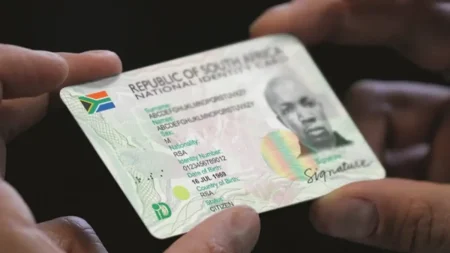When families go through difficult situations, like separation or divorce, it’s important to make sure children are still well taken care of. One of the most crucial aspects of this is ensuring that maintenance payments are made. These payments help cover the costs of raising a child, such as food, clothing, school fees, and other necessities. Unfortunately, many parents don’t always meet their maintenance obligations. This is where garnishee orders can come into play, ensuring that the money owed to children is paid on time and in full.
This article will explain what garnishee orders are, how they work, and why they are important for the financial well-being of children. We will break things down in simple terms and provide useful information for anyone dealing with unpaid maintenance.
What is a Garnishee Order?
A garnishee order is a legal process used to take money directly from a person’s salary or bank account. In the context of child maintenance, it is used when a parent fails to make regular maintenance payments. The garnishee order ensures that the money is taken directly from their employer or bank and given to the custodial parent or guardian of the child.
This means that if a parent does not willingly pay child maintenance, a garnishee order can make sure the payment is taken out of their income automatically. It is a strong legal tool to protect the financial rights of children.
Read More: Child Maintenance 101: Legal Obligations and Application Process
How Does a Garnishee Order Work?
When a parent who is supposed to pay maintenance falls behind on payments, the custodial parent (the parent who looks after the child) can go to court to ask for a garnishee order. Here’s how the process works:
- Apply for a Garnishee Order
The custodial parent needs to apply to the court. This will require proof that the parent who owes maintenance has missed payments and is refusing or unable to catch up. - Court Reviews the Case
The court will look at the case and decide whether a garnishee order is the best solution. The judge will consider whether the non-paying parent has a job and an income that can be garnished (taken from). - Order is Issued to Employer or Bank
If the court grants the order, it will be sent to the employer or bank of the parent who owes maintenance. The order will instruct the employer or bank to deduct the required amount directly from the parent’s wages or account. - Money is Paid to the Custodial Parent
Once the garnishee order is in place, the employer or bank will regularly send the money directly to the custodial parent. This will continue until the maintenance debt is paid off or until the child no longer needs the support.
The Importance of Garnishee Orders for Maintenance Payments
Garnishee orders play a critical role in making sure that children get the financial support they need. Many parents who are supposed to pay maintenance often neglect their responsibility, leaving the custodial parent struggling to meet the child’s needs.
Here are some reasons why garnishee orders are important:
- Ensuring Children Are Provided For
A child’s basic needs should always come first. Garnishee orders ensure that a child’s food, shelter, clothing, and education costs are covered, even when the non-custodial parent fails to pay. - Reducing Financial Burden on Custodial Parents
Raising a child is expensive, and when the non-custodial parent doesn’t contribute, it leaves a heavy financial burden on the custodial parent. Garnishee orders help relieve some of this pressure. - Automatic Payments
Once a garnishee order is in place, the payments are automatic. This means the custodial parent no longer has to chase the other parent for the money each month. It provides peace of mind that the money will come regularly. - Holding Parents Accountable
A garnishee order makes sure that parents are held accountable for their responsibilities. It sends a clear message that failing to support your children financially has serious legal consequences.
Who Can Apply for a Garnishee Order?
Typically, the custodial parent (or legal guardian) who is raising the child can apply for a garnishee order if the non-custodial parent fails to pay maintenance. However, it’s important to note that you cannot apply for a garnishee order unless there is already a court order in place for child maintenance. If you don’t already have a court order for maintenance, you’ll need to go through the court process to secure one before you can ask for a garnishee order.
How to Apply for a Garnishee Order in South Africa
In South Africa, the Maintenance Act governs the process of applying for garnishee orders. Here’s how to go about it:
- Go to Your Local Magistrate’s Court
The first step is to visit the magistrate’s court in your area, where child maintenance matters are handled. - Fill in an Application Form
You’ll need to fill out an application form requesting a garnishee order. Make sure you have all the necessary documentation, such as the court order for maintenance, proof of missed payments, and any relevant financial information about the other parent. - Attend a Court Hearing
After you submit your application, there will be a court hearing. Both parents will be required to attend, and the court will review the case. - Wait for the Court’s Decision
If the court finds that the non-custodial parent has failed to meet their obligations, they will issue the garnishee order. The order will be sent to the parent’s employer or bank. - Monitor the Payments
Once the garnishee order is in place, the money will be taken directly from the non-paying parent’s salary or bank account. You should monitor the payments to ensure they are being made as ordered.
What Happens if the Parent Changes Jobs or Banks?
One challenge with garnishee orders is that they rely on the non-paying parent having a stable income. If the parent changes jobs or moves their money to a new bank, the garnishee order may no longer work. In such cases, the custodial parent may need to reapply for a new garnishee order. It’s important to stay informed about any changes in the non-paying parent’s employment or banking details so that you can act quickly if needed.
Challenges with Garnishee Orders
While garnishee orders are a useful tool for securing maintenance payments, they are not without challenges. Here are some of the common issues custodial parents may face:
- Delayed Court Processes
The court process for obtaining a garnishee order can be slow, especially if there are disputes or if the non-paying parent contests the application. - Unstable Income
If the non-paying parent has an irregular income or is unemployed, garnishee orders may not be effective. In such cases, the court may explore other options, such as seizing assets. - Employer or Bank Cooperation
In some cases, employers or banks may not comply immediately with the garnishee order. If this happens, you may need to return to court to enforce the order.
Despite these challenges, garnishee orders remain a powerful tool for custodial parents who are struggling to receive the maintenance payments they are owed.
Alternatives to Garnishee Orders
If a garnishee order is not feasible, there are other legal options to explore for ensuring maintenance payments are made. These include:
- Contempt of Court
If a parent refuses to pay maintenance despite a court order, they can be held in contempt of court. This can result in fines or even jail time for the non-paying parent. - Attaching Property
The court may order that the non-paying parent’s assets, such as property or vehicles, be seized and sold to cover the maintenance debt. - Blacklisting
Non-paying parents can be blacklisted with credit bureaus, making it difficult for them to get loans or credit.
These alternatives can be considered if garnishee orders are not successful in securing the required maintenance payments.
Read More: How to Apply for SASSA Child Support Grant Online
Garnishee orders are a valuable legal tool to ensure that children receive the financial support they need. When a parent fails to meet their maintenance obligations, the custodial parent can use the law to have money deducted directly from the non-paying parent’s wages or bank account. This ensures that children’s basic needs are met and reduces the financial burden on the custodial parent.
If you are struggling to get the maintenance payments you are owed, it’s important to seek legal advice and explore your options, including applying for a garnishee order. Remember, children deserve to be supported financially, and there are laws in place to help make that happen.










